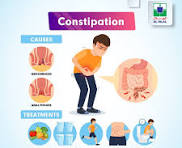INTRODUCTION
Health is wealth—a simple yet profound truth. One sickness can drain a
lifetime of savings, leaving individuals and families in distress. While modern
medicine has made remarkable strides in diagnosing and treating diseases, many
health conditions continue to defy medical solutions, pushing us to explore
alternative approaches.
Natural remedies have been a cornerstone of healing for centuries, long before
the advent of modern pharmaceuticals. Across cultures and civilizations, people
have relied on nature’s gifts—herbs, roots, fruits, and holistic practices—to
restore health and vitality. While this encyclopedia does not seek to undermine
the importance of medical science, it aims to complement it by shedding light
on time-tested natural solutions. It encourages further research into the power of
nature in healing, offering insights into remedies that have provided relief to
countless individuals.
Natural Remedies For Constipation
Constipation is a common digestive issue marked by infrequent bowel
movements, hard stools, or difficulty passing stool. It can be caused by
poor diet, dehydration, sedentary lifestyle, or underlying health issues.
Although over-the-counter medications are available, many people
prefer natural remedies to manage occasional constipation. Below are
several effective natural remedies, each with a brief explanation,
preparation instructions, and usage tips:
1. Fiber-Rich Foods
How it works: Fiber adds bulk and softness to the stool, making
it easier to pass. It also helps promote the regular movement of
the intestines.
Preparation: Add more high-fiber foods to your daily meals.
Good options include oats, whole grains, wheat bran, apples,
pears, prunes, carrots, broccoli, spinach, beans, and lentils.
Usage: Make fiber a consistent part of your diet, gradually
increasing intake to avoid bloating. Drinking plenty of water
alongside fiber is essential to support digestion.
2. Prune Juice
How it works: Prune juice contains sorbitol, a natural sugar
alcohol with mild laxative effects, and dietary fiber, which helps
stimulate bowel activity.
Preparation: Pour a glass of prune juice—no preparation is
needed unless you want to chill it.
Usage: Start with a small glass (about 120 ml) once daily and
increase as needed. Prune juice is available at most local markets
close to you.
3. Aloe Vera
How it works: Aloe vera has anthraquinones—compounds that
stimulate the intestinal wall and help initiate bowel movement.
Preparation: Mix 1 to 2 tablespoons of pure aloe vera gel with a
glass of water or fruit juice.
Usage: Take once daily in the morning. Pure aloe vera gel is
available at health food stores and local markets close to you. Use
only food-grade aloe vera and avoid long-term use without
consulting a healthcare provider.
4. Warm Water with Lemon
How it works: Warm lemon water stimulates digestion and can
help kickstart the digestive tract, encouraging bowel movement.
Preparation: Squeeze the juice of half a fresh lemon into a cup
of warm water. Stir well.
Usage: Drink on an empty stomach in the morning. This simple
daily habit may help regulate your bowel movements naturally.
5. Epsom Salt (Magnesium Sulfate)
How it works: The magnesium in Epsom salt draws water into
the colon, softening the stool and encouraging movement.
Preparation: Dissolve 1 to 2 teaspoons of Epsom salt in a glass
of warm water. Stir until fully dissolved.
Usage: Drink the solution once a day when needed. Use
cautiously and avoid overuse. Epsom salt is available at
pharmacies and local health shops.
6. Ginger Tea
How it works: Ginger supports healthy digestion and can help
reduce constipation by stimulating the digestive system and
relieving bloating.
Preparation: Grate or slice a one-inch piece of fresh ginger and
steep it in a cup of hot water for 10–15 minutes. Optionally, add
honey for taste.
Usage: Drink 2–3 cups daily, preferably after meals. Fresh ginger
is available at local markets close to you.
Key Consideration
These natural remedies are suitable for mild and occasional
constipation. However, if constipation persists beyond a few days or is
accompanied by severe abdominal pain, blood in the stool, or
unexplained weight loss, consult a healthcare professional. Staying
well-hydrated, eating a balanced diet rich in fiber, and engaging in
regular physical activity are essential for long-term digestive health and
prevention of constipation.



